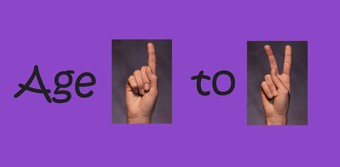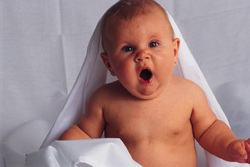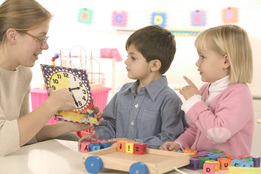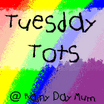
This is a really fun age because children begin to imitate actions, sounds, and vocalizations they hear from their parents and other children their age. My twin girls are 12 months old (almost 13 months....they're growing up way too fast!) and are little parrots. They are waving, clapping, saying "uh-oh" and beginning to bark like their pet dog, Bear. It makes me laugh, and it's also music to my ears since I'm a speech-language pathologist!
From age 1 to 2, your toddler should begin to point to basic body parts such as eyes, nose, mouth, and ears. He should be able to follow simple directions such as "throw the ball,"get your shoes" and understand basic questions such as "Where's your shirt?" Your toddler will pay attention to simple stories, songs, and rhymes (brush up on your songs like Twinkle, Twinkle Little Star and The Itsy Bitsy Spider!). He will also start to increase his vocabulary skills by pointing to pictures in books such as cup, dog, and bubble when they are named.
You will notice that your toddler will say more words every month, although they may be hard for an unfamiliar listener to understand. Between ages 1 to 2, your child will start speaking in simple two word phrases like "more milk," "no cookie," and "mommy book." He will start asking questions using one to two words. Examples of these questions include "Where kitty?", "Go bye-bye?", and "What's that?" Your little one should also use several different consonant sounds at the beginning of words.
Toddlers are like little sponges. They soak up everything, including what they hear. Take advantage of it and talk to your child as much as you can. Sing songs with him, and take time out every day to help develop his speech and language skills!




 RSS Feed
RSS Feed



